
Justus was the fourth Archbishop of Canterbury. He was sent from Italy to England by Pope Gregory the Great, on a mission to Christianize the Anglo-Saxons from their native paganism, probably arriving with the second group of missionaries despatched in 601. Justus became the first Bishop of Rochester in 604, and attended a church council in Paris in 614.

David Herbert Lawrence was an English writer, novelist, poet and essayist. His works reflect on modernity, industrialization, sexuality, emotional health, vitality, spontaneity and instinct. His best known novels—Sons and Lovers, The Rainbow, Women in Love, and Lady Chatterley's Lover—notably concerned gay and lesbian relationships, and were the subject of censorship trials.
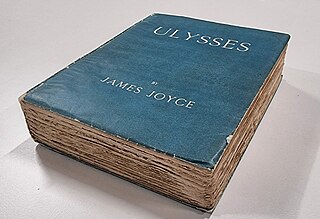
Ulysses is a modernist novel by Irish writer James Joyce. It was first serialized in parts in the American journal The Little Review from March 1918 to December 1920 and then published in its entirety in Paris by Sylvia Beach on 2 February 1922, Joyce's 40th birthday. It is considered one of the most important works of modernist literature and has been called "a demonstration and summation of the entire movement." According to Declan Kiberd, "Before Joyce, no writer of fiction had so foregrounded the process of thinking".

Sir Edwin Landseer Lutyens was an English architect known for imaginatively adapting traditional architectural styles to the requirements of his era. He designed many English country houses, war memorials and public buildings. In his biography, the writer Christopher Hussey wrote, "In his lifetime (Lutyens) was widely held to be our greatest architect since Wren if not, as many maintained, his superior". The architectural historian Gavin Stamp described him as "surely the greatest British architect of the twentieth century".

The British Union of Fascists (BUF) was a British fascist political party formed in 1932 by Oswald Mosley. Mosley changed its name to the British Union of Fascists and National Socialists in 1936 and, in 1937, to the British Union. In 1939, following the start of the Second World War, the party was proscribed by the British government and in 1940 it was disbanded.
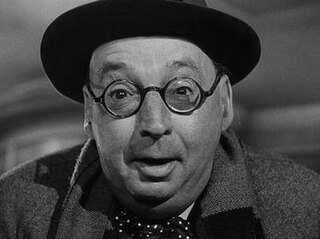
William Miles Malleson was an English actor and dramatist, particularly remembered for his appearances in British comedy films of the 1930s to 1960s. Towards the end of his career he also appeared in cameo roles in several Hammer horror films, with a fairly large role in The Brides of Dracula as the hypochondriac and fee-hungry local doctor. Malleson was also a writer on many films, including some of those in which he had small parts, such as Nell Gwyn (1934) and The Thief of Bagdad (1940). He also translated and adapted several of Molière's plays.

David Gascoyne was an English poet associated with the Surrealist movement, in particular the British Surrealist Group. Additionally he translated work by French surrealist poets.
Honorius was a member of the Gregorian mission to Christianize the Anglo-Saxons from their native Anglo-Saxon paganism in 597 AD who later became Archbishop of Canterbury. During his archiepiscopate, he consecrated the first native English bishop of Rochester as well as helping the missionary efforts of Felix among the East Anglians. Honorius was the last to die among the Gregorian missionaries.

Noel Gay was born Reginald Moxon Armitage. He also used the name Stanley Hill professionally. He was a successful British composer of popular music of the 1930s and 1940s whose output comprised 45 songs as well as the music for 28 films and 26 London shows. Sheridan Morley has commented that he was "the closest Britain ever came to a local Irving Berlin". He is best known for the musical, Me and My Girl.

Sir Geoffrey William Hill, FRSL was an English poet, professor emeritus of English literature and religion, and former co-director of the Editorial Institute, at Boston University. Hill has been considered to be among the most distinguished poets of his generation and was called the "greatest living poet in the English language." From 2010 to 2015 he held the position of Professor of Poetry in the University of Oxford. Following his receiving the Truman Capote Award for Literary Criticism in 2009 for his Collected Critical Writings, and the publication of Broken Hierarchies , Hill is recognised as one of the principal contributors to poetry and criticism in the 20th and 21st centuries.

William de Longchamp was a medieval Lord Chancellor, Chief Justiciar, and Bishop of Ely in England. Born to a humble family in Normandy, he owed his advancement to royal favour. Although contemporary writers accused Longchamp's father of being the son of a peasant, he held land as a knight. Longchamp first served Henry II's illegitimate son Geoffrey, but quickly transferred to the service of Richard I, Henry's heir. When Richard became king in 1189, Longchamp paid £3,000 for the office of Chancellor, and was soon named to the see, or bishopric, of Ely and appointed legate by the pope.

Maurice Stevenson Bartlett FRS was an English statistician who made particular contributions to the analysis of data with spatial and temporal patterns. He is also known for his work in the theory of statistical inference and in multivariate analysis.

Richard Henry Tawney was an English economic historian, social critic, ethical socialist, Christian socialist, and important proponent of adult education. The Oxford Companion to British History (1997) explained that Tawney made a "significant impact" in all four of these "interrelated roles". A. L. Rowse goes further by insisting that "Tawney exercised the widest influence of any historian of his time, politically, socially and, above all, educationally".

Harold John Massingham (25 March 1888 – 22 August 1952) was a prolific British writer on ruralism, matters to do with the countryside and agriculture. He was also a published poet.
Nothhelm was a medieval Anglo-Saxon Archbishop of Canterbury. A correspondent of both Bede and Boniface, it was Nothhelm who gathered materials from Canterbury for Bede's historical works. After his appointment to the archbishopric in 735, he attended to ecclesiastical matters, including holding church councils. Although later antiquaries felt that Nothhelm was the author of a number of works, later research has shown them to be authored by others. After his death he was considered a saint.
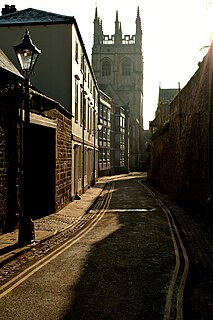
Gropecunt Lane is a street found in English towns and cities during the Middle Ages, believed to be a reference to the prostitution centred on those areas; it was normal practice for a medieval street name to reflect the street's function or the economic activity taking place within it. Gropecunt, the earliest known use of which is in about 1230, appears to have been derived as a compound of the words grope and cunt. Streets with that name were often in the busiest parts of medieval towns and cities, and at least one appears to have been an important thoroughfare.

The English Mistery was a political and esoteric group active in the United Kingdom of the 1930s. A "Conservative fringe group" in favour of bringing back the feudal system, its views have been characterised as "reactionary ultra-royalist, anti-democratic". The organisation was opposed to social welfare, the London School of Economics, and the United States.
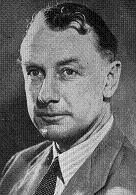
Sir Robert Perceval Armitage was a British colonial administrator who held senior positions in Kenya and the Gold Coast, and was Governor of Cyprus and then of Nyasaland during the period when the former British colonies were gaining independence.
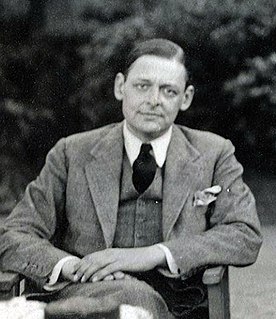
The T. S. Eliot bibliography contains a list of works by T. S. Eliot.
William Henry Thompson (1885–1947), known as Harry or W. H. Thompson, was an English radical lawyer closely involved with trade unions, who founded Thompsons Solicitors. From the 1920s he was associated with the Communist Party of Great Britain (CPGB). He was married to Joan Beauchamp, a prominent suffragette.
















